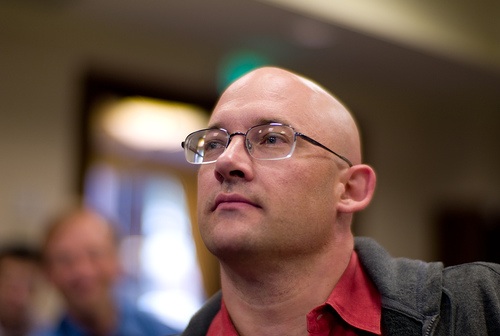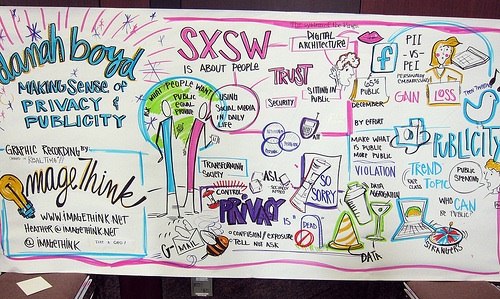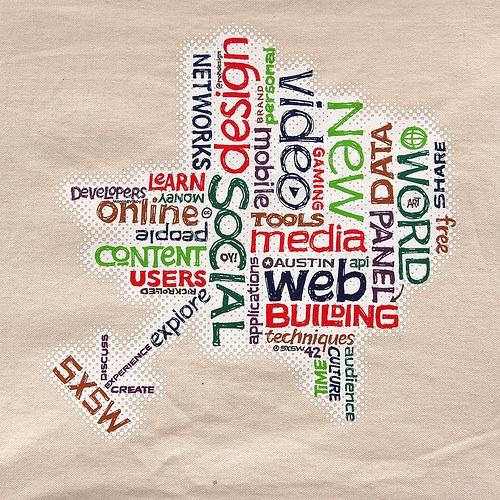SXSWi Speakers Wrap-Up: Clay Shirky
Clay Shirky, NYU professor and author of Here Comes Everybody, was another highlight of my time in Austin. His talk, “Monkeys with Internet Access: Sharing, Human Nature, and Digital Data,” touched on a number of themes and was grouped in three parts:
- Buses and Bibles
- Monkeys and Balloons
- Lingerie and Garbage
Part One: Buses and Bibles
Shirky began with a discussion of the inefficiencies of modern cities, and how many of the solutions people present to address the inefficiencies are engineering solutions, but that a new approach treating inefficiencies with information solutions may provide a better alternative. For example, in Canada an approach to congested roads is a ride share network – sharing information about who’s going where when. This approach is better for almost everyone BUT bus companies, who filed suit against the company offering the service.
Key point 1: “Institutions will try to preserve the problem to which they are the solution.”
Shirky calls that kind of sharing “jackhammer sharing — sharing that’s powerful enough that it actually destroys existing things in the environment.” That kind of sharing “doesn’t happen very often, but it sometimes does around media revolutions.” He connected this idea to Gutenberg and the printing press.
Key point 2: “Abundance breaks more things than scarcity. When things become really abundant, the price goes away. The things that were previously thought of as scarce that are now available to everyone change the world. [E.g. Scribes vs. printing press.] We generally know how to manage scarcity, we don’t know how to manage abundance.”
Part Two: Monkeys and Balloons
This section began with a background on Napster, and Shirky argued that Napster changed the motivation around sharing, which wasn’t a new motivation, more of a bringing back of an old one. Shirky discussed three modes of sharing from the book Why We Cooperate.
Key point 3: There are three different types of sharing: 1. Sharing goods; 2. Sharing services; and 3. Sharing information. Sharing goods is the hardest, sharing services a little easier and sharing information is the easiest of all. “Napster took the world of music, where music was always shared as goods or services, and made it possible to share as information.” We’re programmed to share information – it gives us a positive feeling.
Part Three: Lingerie and Garbage
Here, Shirky gave a number of examples of institutions, groups or initiatives that centered around sharing information that creates a kind of civic value (e.g. Ushahidi, PatientsLikeMe). We now have tools that swing the way we share information with each other.
Key point 4: “Intrinsic motivation and private action was just an accident. Now we can do big things for love, not just private things for love. We’re moving from doing little things for love and big things for money, to doing big things for love.”
On Presenting
Shirky is a master presenter. No tools, no technology, no (visible) notes. Just a man in a three wolf man t-shirt, a well-crafted story and an astute sense of his audience. (I haven’t yet been able to find good video of his talk at SXSW this year, but you can see one of his TED talks here.)
[Note: This post is cross-posted on the Logos blog.]


